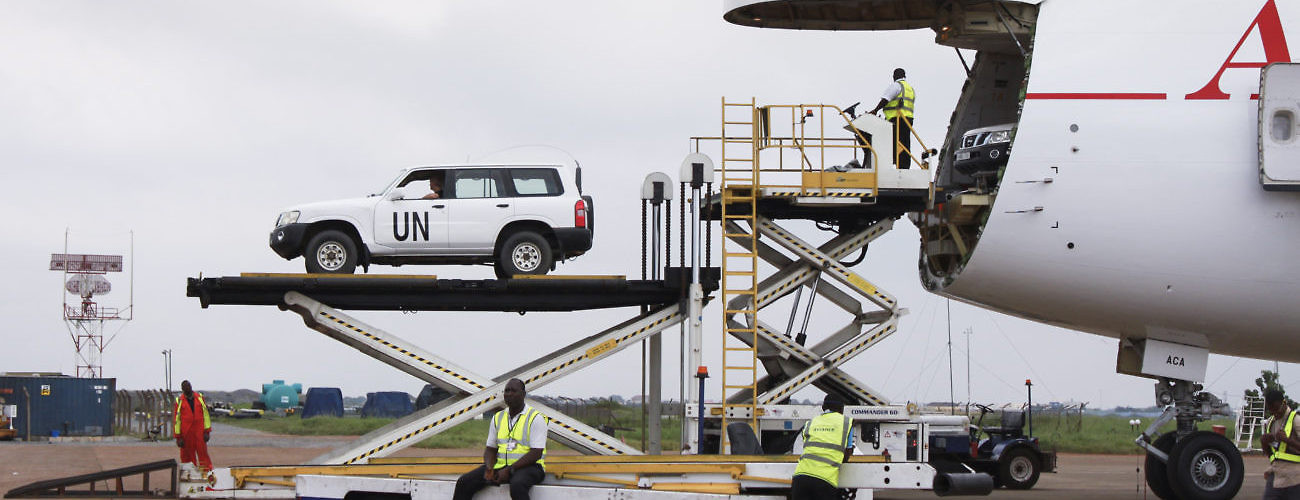Vehicles are unloaded from an airplane in Freetown, Sierra Leone, to be deployed to Ebola-affected countries as part of the UN Mission for Ebola Emergency Response (UNMEER). November 8, 2014. (UN Photo/Ari Gaitanis)
Logistics support is both critical to the safety and health of peacekeepers and vital to success at every stage of a peace operation—especially in the high-threat environments where both UN and regional peace operations are increasingly deployed. Contemporary peace operations are based on logistics partnerships, with support provided by a range of actors including states, international organizations, and commercial contractors.
This report focuses on logistics partnerships that support UN operations and regional peace operations in Africa. Drawing on two UN missions and fifteen regional operations in Africa, it describes, compares, and traces the evolution of these two kinds of logistics partnerships and provides recommendations for improving them. For UN operations, it recommends that the UN:
- Adapt its existing administrative and logistics policies and procedures to the realities of high-threat environments and determine whether new policies and procedures are required;
- Leverage logistics partnerships with previous or parallel regional operations;
- Explore ways to improve inter-mission cooperation; and
- Continue to focus on enhancing the logistics self-reliance of missions, including by ensuring that internal partners have adequate logistics personnel and assets and incentives to deploy them.
For regional peace operations in Africa, it recommends that external logistics partners:
- Clarify when regional operations can receive funding for logistics support;
- Explore cooperation arrangements with external partner states;
- Increase coordination to avoid duplication of efforts and identify gaps; and
- Continue to build the AU Commission’s capacity to support missions.
IPI would like to thank the French Ministry of Defence’s Directorate General for International Relations and Strategy and the government of Norway for making this publication possible.








